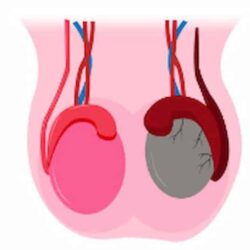The Importance of Uterine Health in IVF Treatment
Understanding Uterine Health
Understanding uterine health is crucial for women of all ages. The uterus plays a vital role in a woman’s reproductive system and overall well-being. A healthy uterus is essential for a woman to conceive and carry a baby to full term. Therefore, it is important for women to be aware of the factors that can affect uterine health, as well as the diagnostic tools and treatment options available.
There are several factors that can impact uterine health, including hormonal imbalances, pelvic infections, fibroids, polyps, and structural abnormalities. Lifestyle factors such as smoking, excessive alcohol consumption, and obesity can also have a negative impact on uterine health. It is important for women to adopt a healthy lifestyle and seek regular medical check-ups to monitor their uterine health.
Diagnostic tools such as ultrasounds, hysteroscopy, and MRI scans can be used to assess uterine health. These tools help to detect any abnormalities or conditions that may be affecting the uterus. Once a diagnosis has been made, there are various treatment options available, including medication, surgery, and lifestyle modifications. It is important for women to work closely with their healthcare providers to determine the most appropriate treatment plan for their individual needs.
Impact Of Uterine Health On Ivf Success
When it comes to undergoing in vitro fertilization (IVF), the health of the uterus plays a crucial role in determining the success of the procedure. A healthy uterus provides an optimal environment for the embryo to implant and grow, leading to a successful pregnancy. On the other hand, uterine issues can significantly impact the success rate of IVF, making it essential to address any underlying uterine health concerns before undergoing fertility treatment.
One of the key factors that can impact IVF success is the presence of uterine fibroids. These non-cancerous growths in the uterus can interfere with embryo implantation and lead to a higher risk of miscarriage. Additionally, abnormalities in the shape or structure of the uterus, such as a septum or adhesions, can also affect the success of IVF. It’s important for individuals undergoing IVF to undergo thorough testing to assess the health of their uterus and address any issues that may affect the outcome of the procedure.
Depending on the specific uterine issue, treatments such as surgical removal of fibroids, hysteroscopic septum resection, or other corrective procedures can be performed to optimize the uterine environment for embryo implantation.
Factors Affecting Uterine Health
There are various factors that can affect the health of the uterus. From hormonal imbalances to lifestyle choices, these factors play a crucial role in maintaining the overall well-being of this essential reproductive organ.
One of the key factors that can impact uterine health is hormonal imbalance. Fluctuations in estrogen and progesterone levels can lead to conditions such as endometriosis, polycystic ovary syndrome (PCOS), and uterine fibroids. These conditions can contribute to irregular menstrual cycles, pelvic pain, and in severe cases, infertility.
Another important factor to consider is a woman’s overall health and lifestyle choices. Poor diet, lack of exercise, and substance abuse can all negatively impact uterine health. Obesity, in particular, can increase the risk of developing conditions such as endometrial cancer and can also affect the success of fertility treatments such as IVF.
Diagnostic Tools For Uterine Health
When it comes to women’s reproductive health, the health of the uterus is of utmost importance. Uterine health plays a crucial role in a woman’s overall well-being and fertility. There are various diagnostic tools available to assess the health of the uterus and to identify any potential issues that may affect a woman’s reproductive system.
One of the most common diagnostic tools used to assess uterine health is a transvaginal ultrasound. This imaging technique allows doctors to get a clear view of the uterus and the surrounding reproductive organs. It can help identify issues such as fibroids, polyps, or abnormalities in the shape or size of the uterus.
Another important diagnostic tool for uterine health is a hysteroscopy. This procedure involves inserting a thin, lighted tube through the vagina and cervix to examine the inside of the uterus. It can be used to diagnose and treat various uterine conditions, such as polyps, fibroids, or adhesions. In some cases, a biopsy may also be performed during a hysteroscopy to examine the uterine lining for any abnormalities.
Treatment Options For Uterine Health
When it comes to treatment options for uterine health, there are several approaches that can be taken depending on the specific condition and individual needs. One common treatment option for uterine health issues is medication, which may be prescribed to address conditions such as fibroids, endometriosis, or abnormal bleeding. These medications can help manage symptoms and improve overall uterine health.
Another treatment option for uterine health is minimally invasive procedures, such as hysteroscopy or laparoscopy, which can be used to diagnose and treat conditions like polyps, fibroids, or adhesions. These procedures are performed using thin, flexible instruments and require only small incisions, leading to faster recovery times and less discomfort compared to traditional surgery.
In some cases, more extensive surgical intervention may be necessary to address uterine health issues, such as the removal of fibroids or treatment of structural abnormalities. This could involve procedures like myomectomy or hysterectomy, depending on the severity of the condition and the patient’s reproductive goals.








